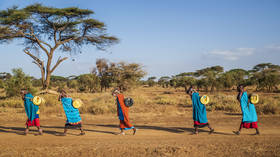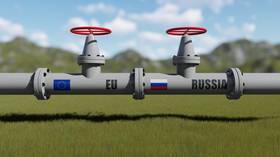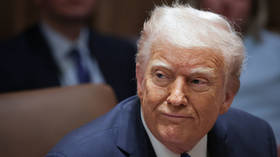How the Ukraine conflict could affect African nations

Russia’s military operation in Ukraine, launched in February, followed by the dramatic increase in tensions on the global scene will undoubtedly affect the economic and political landscape in Africa in the medium term, as well as the balance of external powers active on the continent and Africa’s pace of development in key areas.
Diplomatically, Africa has chosen to remain neutral on the subject of the conflict, alongside a large portion of the Global South nations. 26 out of 54 African states did not support the UN General Assembly’s resolution to condemn Russia’s actions in Ukraine. Eritrea voted against it, while 17 other African countries (out of 35 globally) abstained from the vote. These include Algeria, Angola, Burundi, Zimbabwe, Republic of the Congo, Madagascar, Mali, Mozambique, Namibia, Senegal, Sudan, Tanzania, Uganda, Central African Republic, Equatorial Guinea, South Africa and South Sudan. Eight more nations did not vote: Burkina Faso, Guinea, Guinea-Bissau, Cameroon, Morocco, Togo, Eswatini and Ethiopia. Egypt, despite voicing its support of the resolution, is maintaining constructive cooperation with Russia anyway. No country on the African continent has so far joined the sanctions.
Notably, both Senegal and Tanzania, continental economic leaders of the last decade, did not join its traditional trade and business partners to condemn Russia. Of no less significance is the statement that came from South African President Cyril Ramaphosa who said in parliament that “the war could have been avoided if NATO had heeded the warnings from amongst its own leaders and officials over the years that its eastward expansion would lead to greater, not less, instability in the region.”
Since the launch of the special operation in Ukraine, President Vladimir Putin has held telephone talks with three African leaders: with President of Senegal Macky Sall (who is also the Chair of the African Union until February 2023), President of Egypt Abdel Fattah el-Sisi, and President of South Africa Cyril Ramaphosa.
So far, according to the official statements, the situation has not changed any plans for the Second Russia–Africa Summit - set to be held later this year. On March 3, Presidential Special Envoy for Africa and Middle East Mikhail Bogdanov told the Russian News Agency TASS that “preparations are underway” and “the dates for the summit are yet to be announced.”
In the meantime, the military conflict, sanctions and economic measures introduced by the Russian government to stabilize the domestic market will no doubt have a significant effect on the African economies.
Between 2015 and 2020, Russia and Ukraine supplied up to 25% of the total wheat imports into Africa.
A series of consequences have hit the sector, including a potential temporary ban on wheat exports, disruption to the sowing season in Ukraine, delays with shipments via the Black Sea routes and a looming fertilizer crisis that might affect other key suppliers of wheat to Africa, such as France and Brazil. These issues pose a serious food security threat to a number of African nations, including Egypt, Algeria, Sudan and Tanzania.
At the same time, supply disruptions will affect African countries in different ways. For example, in Nigeria this problem can be solved relatively painlessly: wheat is a commodity with a flexible demand in the country, occupying a market share that’s comparable with other crops, such as corn and cassava.
In other areas, however, the situation not only threatens demand, but also challenges a number of business projects, such as large-scale investments in wheat and other crop storage infrastructure network, as some of these investment projects involve Russian businesses and funding.
Another persistent problem is caused by the shortage of logistics corridors due to sanctions and restrictions. Currently, Russia is unable to run massive grain and fertilizer supplies via the Caspian Sea and Iran.
A sector where Africa is also bound to feel the change is the energy market. On the one hand, Europe shunning Russian oil and gas leaves African nations such as Algeria, Libya, and Nigeria with an opportunity to step in and fill in the gap in the hydrocarbons exports. On the other hand, this opportunity, so far, seems to be strictly hypothetical since none of these nations have the capacity to take advantage of the opportunity within the next five years.
Nigeria, for instance, lacks the capacity for free exports, while other nations, such as Algeria, Libya and to a lesser extent Egypt, might not have too much surplus natural gas and crude oil to sell. Another problem in this area that will have to be dealt with is the rising oil prices triggering the growth of oil product prices. Oil products are mostly imported by African nations, and this crisis is going to hit the nations that rely on imported diesel and residual fuel oil the hardest, such as West Africa.
If the euro zone is engulfed by a crisis, a massive outflow of capital and a persistent economic confrontation with Russia might mean to Africa less economic and tech support from the EU and its member states.
The future of infrastructure investment projects announced at the EU–African Union Summit in February as part of the ambitious Global Gateway Investment Package is also questionable. In the medium term, the social and economic situation in West Africa is causing the biggest concern. This region has been hit by the Covid-19 pandemic harder than others, and a new crisis hitting its food and energy security might further destabilize the regional political systems.
The global crisis, once again, confirms Africa's critical dependence on events not directly related to it. The risk of such destabilization can be countered by investing in the localization of the production of the main commodity categories that are critical for the continental economy: fertilizers, oil products, and food.
In the developing stand-off between the West and the East, Africa will try to remain ‘above the battle,’ metaphorically speaking. It most probably won’t have to step up its budget spending on defense. To achieve that, it just needs to make sure the US-Russia-China confrontation steers clear of the African Continent and to try to maintain its neutral status, remaining united in the process – which is currently an issue, as the recent UN vote has shown.
The statements, views and opinions expressed in this column are solely those of the author and do not necessarily represent those of RT.















